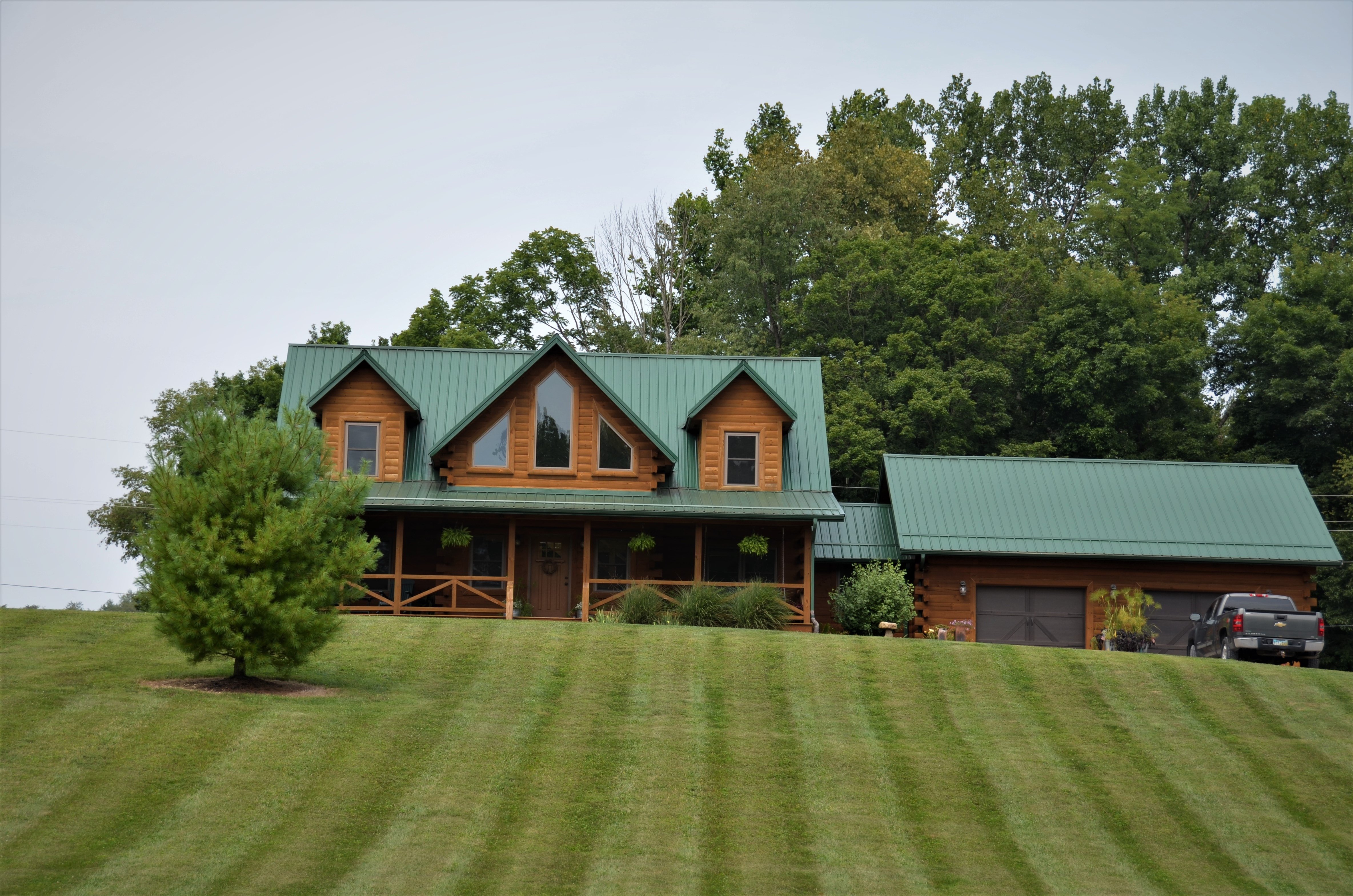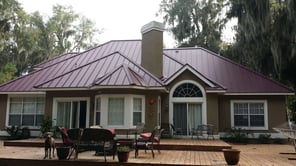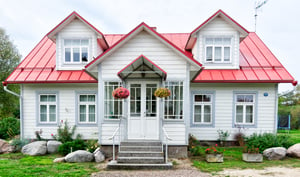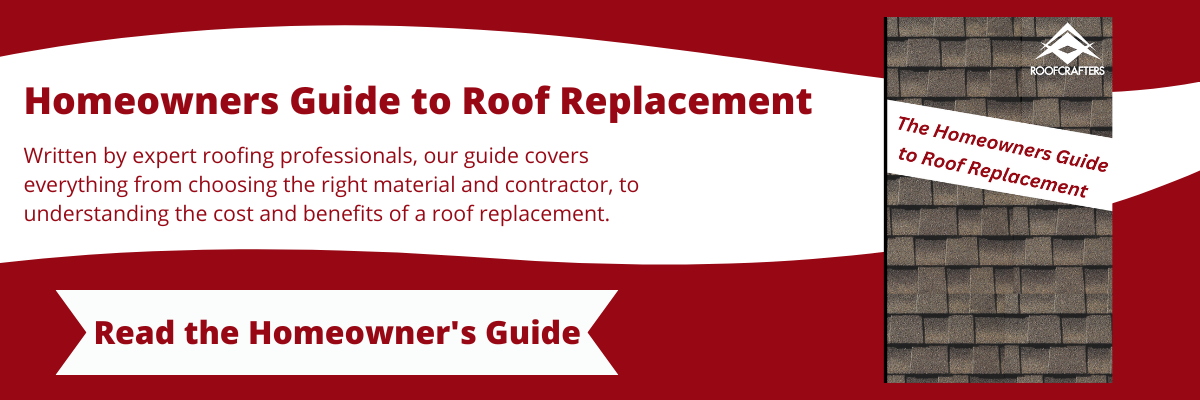Three Metal Roofing Myths Debunked
January , 2024 | 5 min. read

Metal roofing has evolved into a popular choice among homeowners due to its durability, longevity, and aesthetic appeal! Despite its numerous advantages, misconceptions and myths about metal roofs persist, often deterring potential buyers from considering this reliable roofing option. Don't you wish you had a resource to help you debunk fact from fiction?
At RoofCrafters, we know firsthand that there are plenty of tales surrounding metal roof types. After all, we've been installing every type of roof- including metal, for 30 years. When you've been in the roofing industry for three decades, you begin to see and hear the rumors of what people say about roofing systems. Though there are a few drawbacks to metal roofing, homeowners need to know that there are also incredible benefits to this specific choice of material!
In this article, we'll discuss the top three metal roofing myths so you can make an informed decision about if it's the choice for you. From attracting lightning strikes to being colder in winter, let's uncover what you should know. By the time you finish reading, you'll have learned enough metal roofing information to share with friends! If you're ready to begin, let's start!
Metal Roofing Myths: Our Top Three Picks
We've all heard rumors that come from "the grapevine," and whether they're true or not, they still circulate quickly. Metal roofs get a bad rep from some, but do they deserve it? We say no and let's find out why.
Myth 1: Metal Roofs Attract Lightning Strikes
One of the enduring misconceptions about metal roofs is that they are more prone to attracting lightning strikes. However, the reality is quite the opposite. Metal roofs are not lightning magnets; in fact, they are noncombustible, which can provide increased protection in the event of a lightning strike. Unlike flammable roofing materials, such as wood, metal effectively disperses the electrical charge across the roof's surface, minimizing the risk of fire or structural damage during a lightning storm.

Myth 2: Metal Roofs Make Homes Colder in Winter
Another prevalent myth is that metal roofs result in colder interiors during winter months. Contrary to this belief, a well-insulated metal roof performs on par with other roofing materials in terms of heat retention.

When appropriately installed with adequate insulation, metal roofs efficiently prevent heat loss, ensuring that homes remain warm and comfortable. Metal's reflective properties also aid in regulating indoor temperatures by reducing heat absorption in warmer seasons, contributing to energy savings and overall thermal efficiency.
Myth 3: Metal Roofs are Noisy During Rainfall
Many homeowners are deterred from choosing metal roofs due to the misconception that they are significantly noisier during rainfall compared to other roofing materials. However, advancements in roofing technology have effectively addressed this problem!

Modern metal roofs, when properly installed with solid sheathing and sufficient attic insulation, produce no more sound during rainstorms than traditional asphalt shingles or other roofing materials. The noise level from raindrops hitting a metal roof is often comparable and sometimes even quieter, making it an unfounded concern.
Metal Roofing: A Fantastic Choice for Homeowners
Despite rumors, metal roofs offer numerous advantages, making them an excellent choice for homeowners seeking durable, long-lasting, and energy-efficient roofing. What's some of its advantages?
Durability and Longevity:
- Metal roofs are highly durable and can withstand extreme weather conditions such as heavy rain, wind, hail, and snow.
- They resist cracking, warping, and corrosion, ensuring a longer lifespan compared to traditional roofing materials like asphalt shingles.
- Metal roofs can last 50 years or more with minimal maintenance, reducing the need for frequent replacements and associated costs.
Energy Efficiency:
- These roofs have reflective properties that prevent excessive heat absorption, keeping homes cooler in warm climates and reducing cooling costs.
- Metal roofs are effective in shedding snow and ice, preventing buildup and potential water damage during winter months.
- Their energy-efficient design contributes to decreased reliance on air conditioning, making them environmentally friendly and cost-effective.
Aesthetic Appeal and Versatility:
- Available in various colors, finishes, and styles, metal roofs offer versatility to match different architectural preferences and home designs.
- Homeowners can choose designs resembling traditional roofing materials or opt for modern standing seam metal roofs, enhancing the home's curb appeal.
Eco-Friendliness:
- Metal roofs often contain recycled materials and are recyclable at the end of their lifespan, reducing environmental impact.
- Their energy efficiency contributes to sustainability by minimizing the carbon footprint associated with heating and cooling homes.
Low Maintenance:
- Metal roofs require minimal maintenance and upkeep compared to other roofing materials, reducing maintenance costs over time.
- They are resistant to mold, mildew, and pests, maintaining their appearance and structural integrity for decades.
Metal roofs provide homeowners with exceptional durability, longevity, energy efficiency, aesthetic appeal, and eco-friendliness. These qualities make them a valuable investment, offering both long-term savings and environmental benefits while enhancing the overall quality and value of a home!
Have You Fallen for Common Metal Roofing Myths?
If you have- no worries. Now you know! Myth-busting the assumption that metal roofs are prone to lightning strikes, excessively noisy during rainfall, and attract lightning due to their conductivity has revealed that these are just misunderstandings. Contrary to popular belief, metal roofs are not lightning magnets and do not increase the likelihood of lightning strikes. Additionally, with proper insulation and installation techniques, any noise associated with rain hitting the roof is comparable to other roofing materials!
Another prevailing myth debunked is the assumption that metal roofs are more prone to denting and damage from hail compared to other materials. By understanding that high-quality metal roofing systems are resilient and designed to withstand harsh weather conditions, including hail, you can appreciate their durability and longevity without fear of dents or damages.
If you feel you're ready to talk to a licensed professional, RoofCrafters is eager to assist with your needs. You can get in touch with one of our friendly representatives by visiting our contact page. No matter what's going through your mind, we're here to lend a hand!
My name is Anthony, and I am the lead estimator of RoofCrafters’ Georgia/South Carolina division. The roof is the most important part of a structure, and people count on that to protect themselves and their families. That is one of the many reasons why I love my job and enjoy coming to work every day. The continuous training, honesty, and providing the customer with the Roofcrafters experience is what makes me the best in the business.




